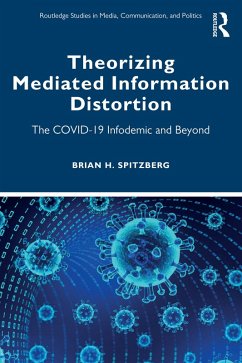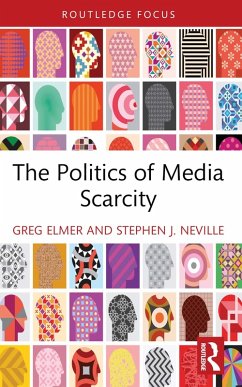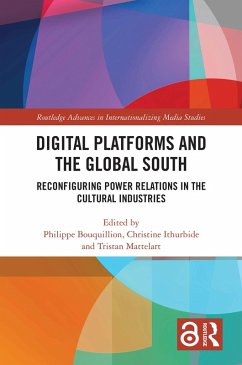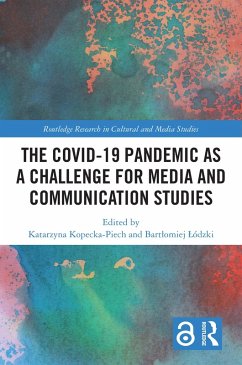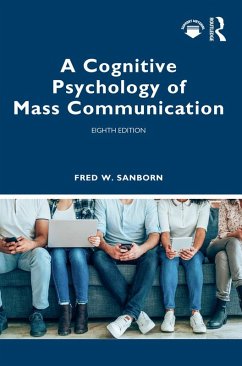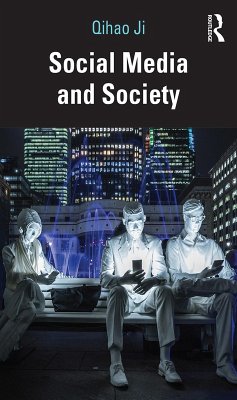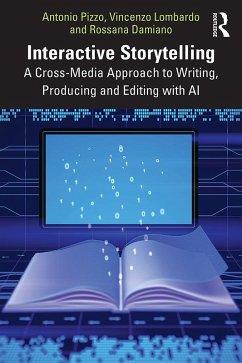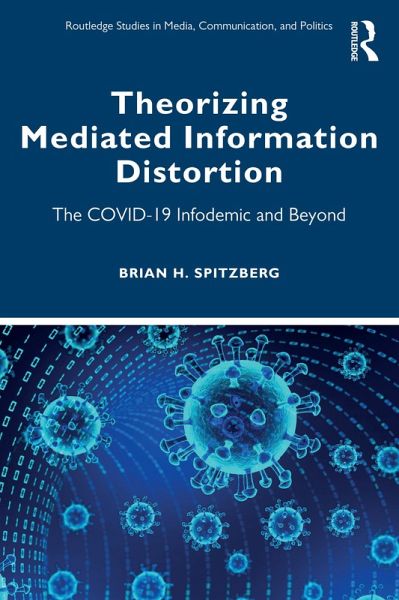
Theorizing Mediated Information Distortion (eBook, PDF)
The COVID-19 Infodemic and Beyond
Versandkostenfrei!
Sofort per Download lieferbar
39,95 €
inkl. MwSt.
Weitere Ausgaben:

PAYBACK Punkte
20 °P sammeln!
This book explores the phenomenon of distortion of information through media via the lens of the COVID-19 pandemic, and the ways in which relevant information distortion and virality have occurred in regard to the disease and its risks.Positing that the interrelated processes of misinformation, disinformation, fake news and conspiracy theories are related forms of distortion of information through media (DIM) and can only be understood through a multilevel theoretical model that incorporates message-based, individual difference, social network-based, societal and geotechnical factors, Brian H....
This book explores the phenomenon of distortion of information through media via the lens of the COVID-19 pandemic, and the ways in which relevant information distortion and virality have occurred in regard to the disease and its risks.
Positing that the interrelated processes of misinformation, disinformation, fake news and conspiracy theories are related forms of distortion of information through media (DIM) and can only be understood through a multilevel theoretical model that incorporates message-based, individual difference, social network-based, societal and geotechnical factors, Brian H. Spitzberg develops an integrative, well-argued, and well-evidenced framework within which these issues can and should be addressed.
This book offers a model for further research across such disciplines as communication, journalism/media studies, political science, sociology, cognitive psychology, social psychology, evolutionary psychology, public health, big data analytics, social network analytics, computational linguistics and geographic information sciences, and will interest researchers and students in those areas.
Positing that the interrelated processes of misinformation, disinformation, fake news and conspiracy theories are related forms of distortion of information through media (DIM) and can only be understood through a multilevel theoretical model that incorporates message-based, individual difference, social network-based, societal and geotechnical factors, Brian H. Spitzberg develops an integrative, well-argued, and well-evidenced framework within which these issues can and should be addressed.
This book offers a model for further research across such disciplines as communication, journalism/media studies, political science, sociology, cognitive psychology, social psychology, evolutionary psychology, public health, big data analytics, social network analytics, computational linguistics and geographic information sciences, and will interest researchers and students in those areas.
Dieser Download kann aus rechtlichen Gründen nur mit Rechnungsadresse in A, B, BG, CY, CZ, D, DK, EW, E, FIN, F, GR, HR, H, IRL, I, LT, L, LR, M, NL, PL, P, R, S, SLO, SK ausgeliefert werden.




